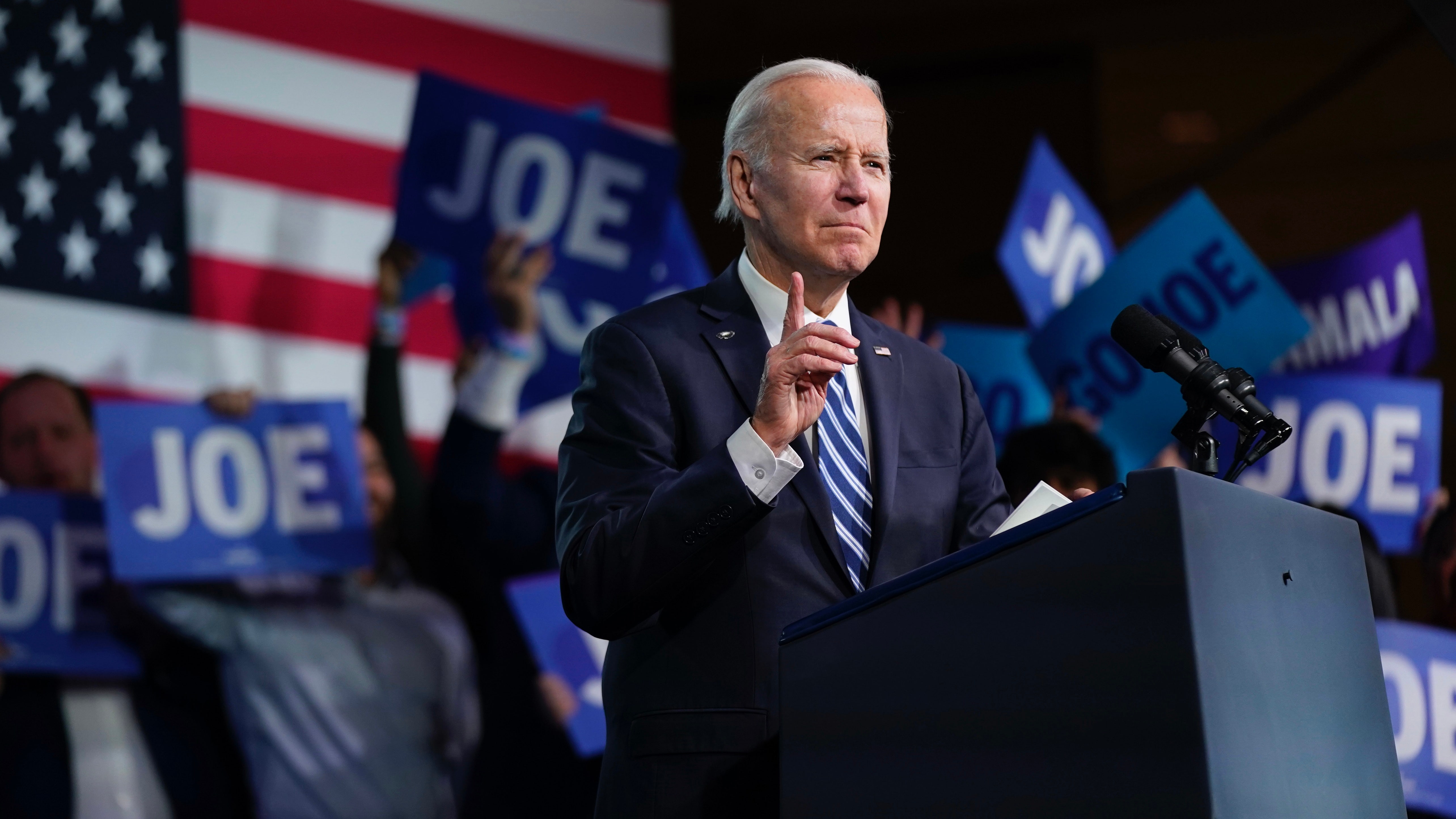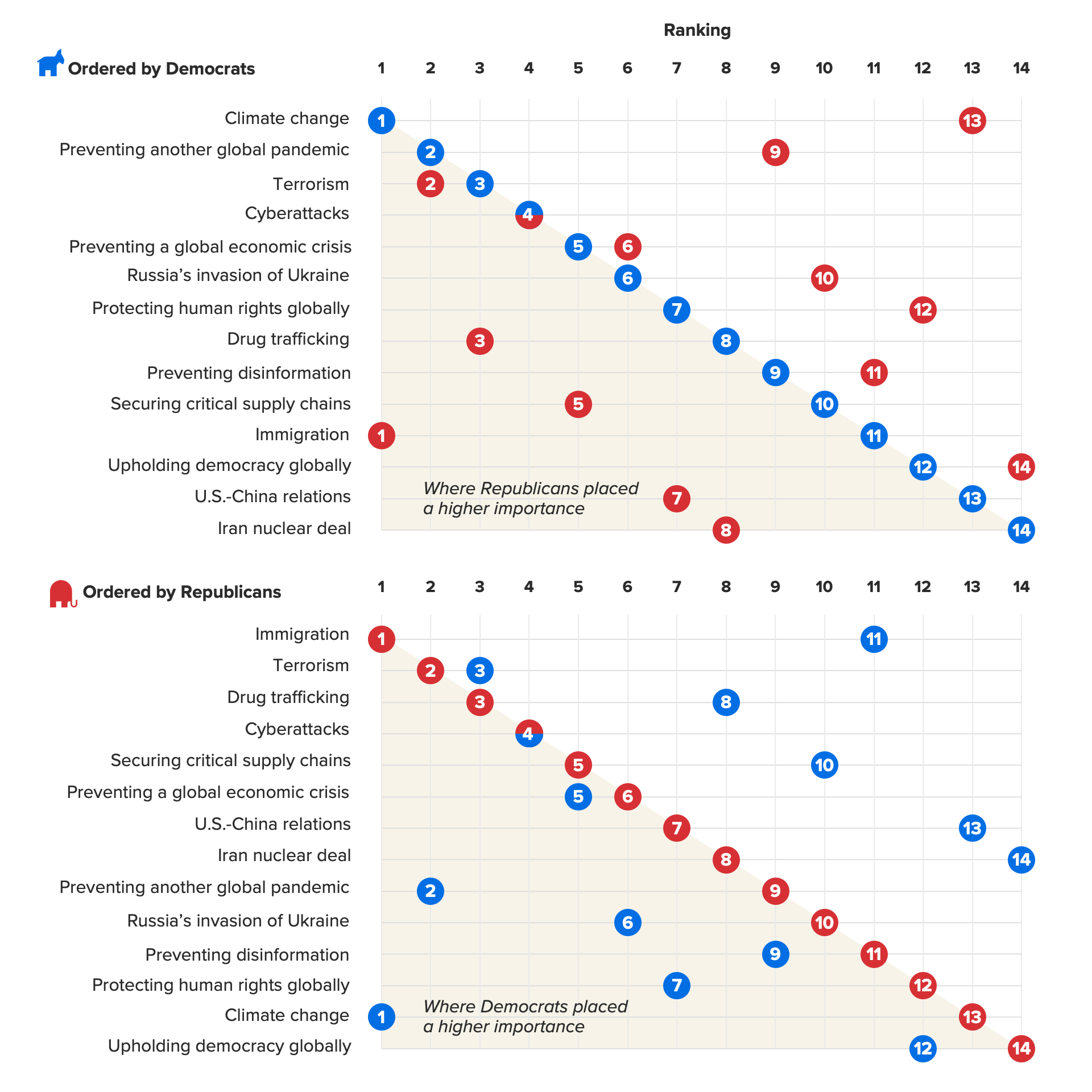US Foreign Policy Languishes: Why Democrats Are Stuck On Limited Options
The world is a complex and ever-changing place, and as such, the United States' foreign policy must be able to adapt and evolve to address the shifting global landscape. However, despite the efforts of the current administration, US foreign policy has indeed languished in recent years, leaving many wondering why Democrats are stuck on limited options.
The challenges facing the US in the realm of foreign policy are multifaceted, and they cannot be attributed to a single factor or event. Instead, they are the result of a combination of factors, including the rise of new global powers, the changing nature of global threats, and the limitations of US foreign policy tools. To truly understand why US foreign policy is stuck, it is necessary to examine these factors in more detail.
The Rise of New Global Powers
One of the primary challenges facing the US in the realm of foreign policy is the rise of new global powers, such as China and Russia. These countries have been rapidly growing in economic and military power, and they are increasingly challenging US dominance in key regions of the world. The implications of this rise are far-reaching, and they have significant implications for US foreign policy.
China's Rise: A Challenge to US Dominance
China's rise has been one of the most significant developments in global politics in recent years. The country's rapid economic growth and large-scale investments in infrastructure and technology have given it a significant advantage over the US in many areas. However, China's rise also poses significant challenges for US foreign policy, including the potential for competition and conflict over resources and territory.
- China's Belt and Road Initiative (BRI) is a prime example of its growing influence, with over 100 countries participating in the initiative and billions of dollars invested in infrastructure projects around the world.
- However, the BRI also raises concerns about the potential for China to expand its influence and exert its power over other countries, potentially limiting US options for engagement and cooperation.
Russia's Reassertion of Power
Russia's reassertion of power in the post-Soviet era has also been a significant challenge for US foreign policy. The country's military intervention in Ukraine and its support for separatist movements in eastern Europe have created tensions with the US and its allies.
- The annexation of Crimea in 2014 was a significant turning point in Russia's reassertion of power, and it has had significant implications for US foreign policy in the region.
- However, the crisis in Ukraine has also highlighted the limitations of US foreign policy tools, including the potential for economic sanctions and diplomatic isolation to achieve their objectives.
The Changing Nature of Global Threats
Another challenge facing US foreign policy is the changing nature of global threats. The rise of new global challenges, such as terrorism and pandemics, has required the US to adapt its approach to foreign policy in response.
The Challenge of Terrorism
Terrorism has been one of the most significant global threats in recent years, and it has required the US to adapt its approach to foreign policy in response. The US has invested significant resources in counterterrorism efforts, including military interventions and intelligence gathering.
- However, the challenge of terrorism has also highlighted the limitations of US foreign policy tools, including the potential for military intervention to achieve their objectives.
- The US has also faced criticism for its approach to counterterrorism, with some arguing that it has prioritized military action over diplomacy and cooperation.
The Challenge of Pandemics
The COVID-19 pandemic has also been a significant challenge for US foreign policy, highlighting the need for cooperation and coordination among countries to address global health threats.
- The pandemic has required the US to adapt its approach to foreign policy in response, including investing in global health infrastructure and strengthening international partnerships.
- However, the pandemic has also highlighted the limitations of US foreign policy tools, including the potential for global health crises to overwhelm national capacities and test international cooperation.
The Limitations of US Foreign Policy Tools
Finally, the limitations of US foreign policy tools have also played a significant role in its stagnation in recent years. The US has a range of tools at its disposal, including diplomacy, economic sanctions, and military intervention. However, these tools have limitations, and they are not always effective in achieving their objectives.
The Limitations of Diplomacy
Diplomacy is a key tool of US foreign policy, and it has been used to great effect in resolving conflicts and promoting cooperation among countries. However, diplomacy also has its limitations, including the potential for US diplomats to be perceived as weak or ineffective.
- The US has faced criticism for its approach to diplomacy, with some arguing that it has been too focused on military intervention and too willing to engage in provocative behavior.
- However, diplomacy remains a crucial tool of US foreign policy, and it will continue to play a key role in shaping the country's relationships with other nations.
The Limitations of Economic Sanctions
Economic sanctions are a common tool of US foreign policy, used to pressure countries to change their behavior or to coerce them into cooperation. However, economic sanctions also have their limitations, including the potential for them to harm innocent civilians and to create unintended consequences.
- The US has used economic sanctions to great effect in promoting compliance with international law and in undermining the activities of rogue states.
- However, economic sanctions also require careful consideration and planning, and they must be used in a way that balances their potential benefits with their potential costs.
The Limitations of Military Intervention
Military intervention is a powerful tool of US foreign policy, and it has been used to great effect in achieving its objectives. However, military intervention also has its limitations, including the potential for unintended consequences and the risk of destabilizing regional systems.
- The US has used military intervention to great effect in promoting stability and security in key regions, including the Middle East and Africa.
- However,
Tara Reid Husband
Who Isavid Muir Married To
Oksana Glamour Official
Article Recommendations
- Sabrina Carpenter Height Ft
- Katy Lane Newcombe
- Marietemara Fans
- Amariah Moralesd
- Orlando Browniddy
- Judd Nelson
- Angelina Joliead News
- Is Kevin Costnertill Alive
- Claire Rushbrook
- Choi Jin Hyuk



